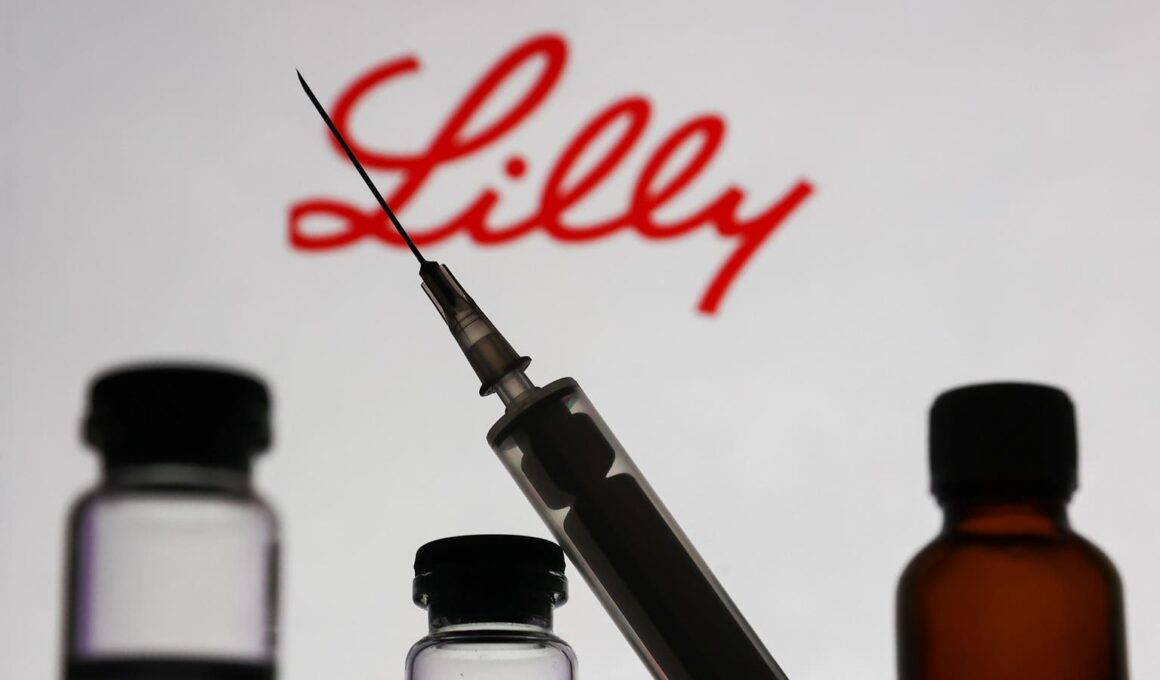Topline
Eli Lilly’s weight loss and diabetes injection tirzepatide—the active ingredient in Zepbound and Mounjaro—could improve symptoms of heart failure in patients with obesity, the company said Thursday, the latest findings suggesting the increasingly popular medications for weight loss and diabetes could have cardiovascular benefits.
The drug also significantly reduced symptoms and physical limitations.
NurPhoto via Getty Images
Key Facts
Patients who used tirzepatide had a 38% lower risk of hospitalization or death because of heart complications compared to a placebo, according to findings from a two-year-long study by Eli Lilly, which involved more than 700 people.
The drug significantly reduced symptoms and physical limitations associated with heart failure, including fatigue, shortness of breath, a reduced ability to exercise and swelling in the arms and legs, the company said.
Tirzepatide also resulted in an average weight loss of 15.7% in patients with and without type 2 diabetes, compared with 2.2% in a group that used a placebo.
Eli Lilly shares rose by 3.2% to over $830 in premarket trading.
Get Forbes Breaking News Text Alerts: We’re launching text message alerts so you’ll always know the biggest stories shaping the day’s headlines. Text “Alerts” to (201) 335-0739 or sign up here.
Big Number
6.7 million. That’s how many adults in the U.S. have heart failure, according to the Centers for Disease Control and Prevention. Heart failure was responsible for nearly 14% of all deaths in the U.S. in 2022.
Key Background
Studies from pharmaceutical firms in recent months suggest additional benefits for GLP-1 agonists, a class of drugs that includes Eli Lilly’s Mounjaro and Zepbound and Novo Nordisk’s Ozempic and Wegovy. The European Union’s medical regulator approved Wegovy for reducing heart risks and strokes in overweight or obese patients, following earlier approval from the Food and Drug Administration. A study released in March found the drug reduced the risk of heart attack, stroke or death from cardiovascular disease by 20%. Another study published earlier this week found Ozempic could help people quit smoking. Other research suggests GLP-1 drugs could benefit people with sleep apnea, addiction, Parkinson’s, kidney disease and fatty liver disease.
Further Reading
Exxon acquiring Pioneer for nearly $60 billion, a mysterious respiratory illness affecting dogs across the U.S. and the challenges against transgender health care. Before joining Forbes, he covered the Black Mountain, North Carolina community for the Asheville Citizen Times. Ty earned his bachelor’s degree in journalism from Auburn University and his master’s degree in journalism from Northwestern University. Email him at troush@forbes.com.
“>








